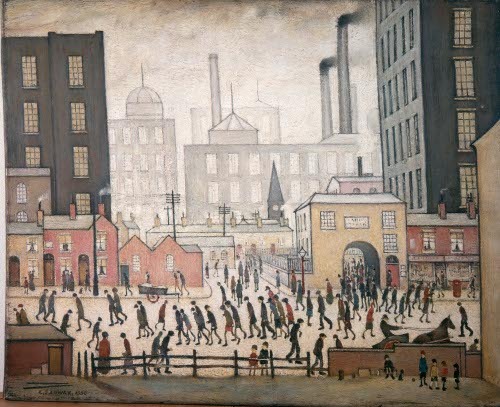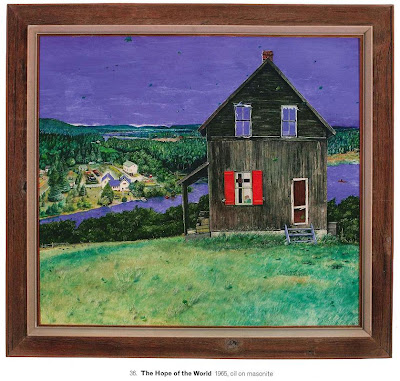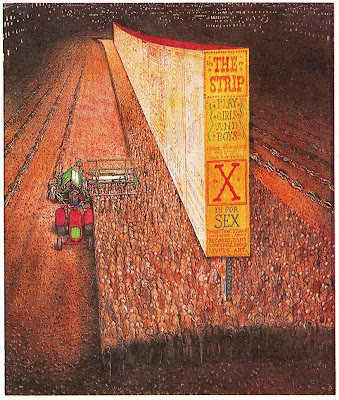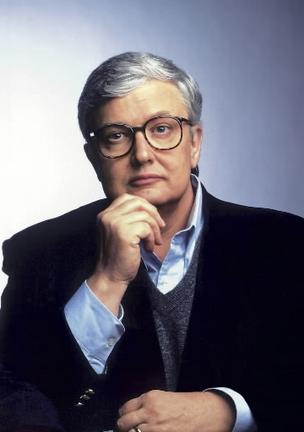I mentioned that I definitely appreciate Robert Ebert's Great Movie
reviews where he reviews the classics or re-reviews more contemporary
movies that he felt should join the list of greats. He collected them into 3 books and a fourth may have been in the works. To go to the original source (which then allows you to read the entire review), click
here. (I hope that these reviews stay up indefinitely, but his wife and/or the Sun Times may decide to move them elsewhere for more permanent archiving.) I see that they have already revamped the Great Movies site (and possibly added one or two more that Ebert always intended to include). In many ways it is better with links where you can order the DVDs, but now slightly harder to get the basics (and a few are mischaracterized according to their sorting app), so I think I'll keep going with my own version of the list below.
There appear to be 363 movies in the list -- a great movie each day for a year with just a couple of days off for rest! Though at my typical rate, it might take 10 years, and there are some I really have no interest in seeing. More than many posts, this will require some editing. I think what I shall do, is sort them by decade, as well as add director's name, and then put in a note as to which Volume the review appears in. This may take me a while, so this post is definitely a work in progress. An X in front the title means I have watched it (it's too embarrassing to list the ones I own but haven't watched). I clearly have a long ways to go...
Incidentally, while I would like to introduce my children to these cinema classics, there are a lot that are completely inappropriate for children. I have tried to watch the Tati films with them, but even these are just a bit over their heads. In terms of my own personal viewing, I will probably re-watch
Iriku next (to celebrate getting the U.S. taxes done -- Canadian taxes still undone...) and then
Werckmeister Harmonies, mostly because the novel I just started (Michael Crummey's
Galore) starts off with a whale beaching itself in a small town, though it plays itself out completely differently of course.
Note any links below will link to my own thoughts on the movies, and not Ebert's, so forewarned is forearmed. Actually, there are three exceptions -- 3 italicized movies were 4-star reviews that Ebert didn't have the time (or perhaps inclination) to include in his collection of Great Movies, so I shall link to the original reviews.
Movies from the 1910s & 20s
X The Battleship Potemkin - V1
The Birth of a Nation - V2
Broken Blossoms (D.W. Griffith) - V1
The Cabinet of Dr. Caligari (Robert Wiene)
X The Circus (Chaplin)
Diary of a Lost Girl (G.W. Pabst)
The Fall of the House of Usher - V2
Faust (Murnau) - V3
The Films of Buster Keaton
The General - V1
Greed (Erich von Stroheim) - V1
The Last Laugh - V2
The Man Who Laughs - V2
Man With a Movie Camera
X Metropolis [2010 Restoration] (Fritz Lang) - V1
Nanook of the North - V3
Nosferatu (Murnau) - V1
Pandora's Box - V1
The Passion of Joan of Arc - V1
The Phantom of the Opera
X Safety Last - V3
Souls For Sale (Rupert Hughes)
Sunrise - V2
X Un Chien Andalou (Bunuel/Dali) - V1
Movies from the 1930s
The Adventures of Robin Hood - V2
X Bride of Frankenstein (James Whalen) - V1
X City Lights (Chaplin) - V1
X Dracula - V1
X Duck Soup (Marx Brothers) - V1
X Gone With the Wind - V1
Grand Illusion (Renoir) - V1
X King Kong (Merian Cooper) - V2
L'Atalante (Vigo) - V1
M (Fritz Lang) - V1
Make Way for Tomorrow
X My Man Godfrey - V3
The Only Son (Ozu)
The Rules of the Game (Renoir) - V2
The Scarlet Empress - V3
X Snow White and the Seven Dwarfs - V2
Stagecoach
Swing Time - V1
The Thin Man - V2
Top Hat - V3
Triumph of the Will (Leni Riefenstahl) - V3
Trouble in Paradise (Lubitsch) - V1
X The Wizard of Oz - V1
Movies from the 1940s
X The Bank Dick (W.C. Fields) - V2
Beauty and the Beast (Jean Cocteau) - V1
The Best Years of Our Lives (Goldwyn) - V3
X The Bicycle Thief / Bicycle Thieves (De Sica) - V1
X The Big Sleep (Howard Hawks) - V1
X Casablanca - V1
Cat People (Jacques Tourneur) - V3
Children of Paradise (Marcel Carne) - V2
X Citizen Kane (Welles) - V1
Detour - V1
Double Indemnity (Billy Wilder) - V1
X The Great Dictator (Chaplin) - V3
The Grapes of Wrath - V2
Great Expectations (David Lean) - V2
X It's a Wonderful Life (Frank Capra) - V1
X Kind Hearts and Coronets (I actually find this film over-rated) - V2
X Laura (Otto Preminger) - V2
The Life and Death of Colonel Blimp (Powell & Pressburger) - V2
The Lady Eve - V1
X The Maltese Falcon (John Huston) - V1
My Darling Clementine (John Ford) - V1
Notorious (Hitchcock) - V1
Orpheus (Jean Cocteau) - V2
X Out of the Past (Jacques Tourneur) - V3
X Pinocchio - V1
Red River (Howard Hawks) - V1
The Red Shoes (Powell & Pressburger) - V3
Shadow of a Doubt (Hitchcock)
The Thief of Bagdad - V3
X The Third Man - V1
The Treasure of the Sierra Madre (John Huston) - V2
Yankee Doodle Dandy (Michael Curtiz) - V2
Movies from the 1950s
12 Angry Men (Sidney Lumet) - V2
Ace in the Hole (Billy Wilder) - V3
All About Eve - V1
X The Apu Trilogy (S. Ray) - V1
The Ballad of Narayama
The Band Wagon (Vincente Minnelli) - V3
Beat the Devil - V2
The Big Heat - V2
X Bob le Flambeur (Melville) - V2
The Bridge on the River Kwai (David Lean) - V2
X Chuck Jones: Three Cartoons - V3
X Diary of a Country Priest
The Earrings of Madame de... (Max Ophuls) - V2
Floating Weeds (Ozu) - V1
Forbidden Games (Rene Clement) - V3
X The 400 Blows (Truffaut) - V1
French Cancan (Jean Renoir)
X Ikiru (Kurosawa) - V1
In a Lonely Place (Nicholas Ray)
Ivan the Terrible, Parts I & II (Eisenstein)
Johnny Guitar (Nicholas Ray) - V3
The Killing (Kubrick)
The Life of Oharu (Mizoguchi)
X M. Hulot's Holiday (Tati) - V1
A Man Escaped (Bresson)
X Mon Oncle (Tati) - V2
The Music Room (S. Ray) - V2
The Night of the Hunter (Charles Laughton) - V1
Nights of Cabiria (Fellini) - V2
On the Waterfront - V1
Ordet (Carl Dreyer) - V3
Paths of Glory (Kubrick) - V3
Pickpocket (Bresson) - V1
X Rashomon (Kurosawa) - V2
X Rear Window (Hitchcock) - V2
Rebel Without a Cause - V3
Rififi (Dassin) - V2
Rio Bravo (Howard Hawks)
The River (Jean Renoir) - V3
Sansho the Bailiff (Mizoguchi) - V3
The Searchers (John Ford) - V2
Senso (Visconti)
The Seven Samurai (Kurosawa) - V1
X The Seventh Seal - V1
Shane - V2
Singin' in the Rain - V1
X Smiles of a Summer Night (Bergman)
X Some Like It Hot - V1
X Strangers on a Train (Hitchcock) - V2
Sunset Boulevard (Billy Wilder) - V1
The Sweet Smell of Success - V1
Tokyo Story (Ozu) - V2
Touch of Evil (Welles) - V2
X Touchez Pas au Grisbi - V2
Ugetsu (Mizoguchi) - V2
X Umberto D - V2
X Vertigo (Hitchcock) - V1
Written on the Wind (Douglas Sirk) - V1
Movies from the 1960s
X 8 1/2 / Eight and a Half Fellini - V1
X 2001: A Space Odyssey (Kubrick) - V1
The Apartment (Billy Wilder)
Army of Shadows (Melville) - V3
Au Hasard Balthazar (Bresson) - V2
An Autumn Afternoon (Ozu)
The Battle of Algiers - V3
Belle de Jour (Bunuel) - V1
Blow-Up (Antonioni) - V1
Bonnie and Clyde - V1
Breathless (Godard) - V2
X Chimes at Midnight (Welles) - V3
Cleo from 5 to 7 (Agnes Varda)
La Collectionneuse (Rohmer)
Cool Hand Luke - V3
X La Dolce Vita (Fellini) - V1
X Dr. Strangelove (Kubrick) - V1
Easy Rider - V3
The Exterminating Angel (Bunuel) - V1
The Firemen's Ball (Milos Forman) - V2
X Goldfinger - V2
The Good, the Bad and the Ugly (Sergio Leone) - V2
The Gospel According to St. Matthew (Pasolini) - V2
Harakiri
A Hard Day's Night - V1
The Hustler - V2
(Truman Capote's) In Cold Blood (Richard Brooks) - V2
Inherit the Wind - V3
Jules and Jim (Truffaut) - V2
Juliet of the Spirits (Fellini) - V3
L'Avventura (Antonioni) - V1
X Last Year at Marienbad (Alain Resnais) - V1
Lawrence of Arabia (David Lean) - V1
Leon Morin, Priest (Melville)
The Leopard - V2
X The Manchurian Candidate - V2
The Man Who Shot Liberty Valance
My Fair Lady (George Cukor) - V3
Pale Flower (Mishima ?)
Peeping Tom - V1
Persona (Bergman) - V1
X Playtime (Tati) - V3
The Producers - V2
Psycho (Hitchcock) - V1
Red Beard (Kurosawa)
Rocco and His Brothers (Luchino Visconti) - V3
Romeo and Juliet - V2
X Le Samourai (Melville) - V1
Samurai Rebellion - V3
X The Silence (Bergman) - V3
X Through a Glass Darkly (Bergman) - V3
Victim (Price) - V2
Viridiana (Bunuel)
Vivre sa Vie / My Life to Live (Godard) - V1
West Side Story - V2
What Ever Happened to Baby Jane? (Robert Aldrich) - V3
The Wild Bunch - V1
Winter Light (Bergman) -
haven't made it through Bergman's Faith Trilogy (yet) -V3
Woman in the Dunes - V1
Yellow Submarine
Yojimbo (Kurosawa) - V3
Movies from the 1970s
Aguirre, the Wrath of God (Werner Herzog) - V1
Ali: Fear Eats the Soul (Fassbinder) - V1
Alien - V2
Amarcord (Fellini) - V2
X Annie Hall (Woody Allen) - V2
X Apocalypse Now (Coppola) - V1
Badlands(Terence Malick)
Barry Lyndon (Kubrick)
X Being There - V2
Le Boucher / The Butcher (Chabrol) - V2
Bring Me the Head of Alfredo Garcia (Peckinpah) - V2
Chinatown (Polanski) - V1
*
Chloe in the Afternoon (Rohmer)
The Conversation - V2
X Cries and Whispers (Bergman) - V2
X Day for Night/La Nuit Americaine (Truffaut)
Days of Heaven (Terence Malick) - V1
The Discreet Charm of the Bourgeoisie (Bunuel) - V2
Dog Day Afternoon - V3
Don't Look Now - V2
El Topo - V3
The Enigma of Kaspar Hauser (Werner Herzog) - V3
Five Easy Pieces - V2
Gates of Heaven - V1
The Godfather - V1
The Godfather, Part II - V3
Heart of Glass (Werner Herzog)
X Jaws (Spielberg) - V2
Killer of Sheep (Burnett) - V3
The Last Picture Show - V3
Last Tango in Paris - V3
Late Spring (Ozu) - V3
The Long Goodbye (Altman) - V3
X Manhattan - V1
The Marriage of Maria Braun (Fassbinder) - V3
McCabe & Mrs. Miller (Altman) - V1
Mean Streets (Scorsese) - V2
Mon Oncle Antoine - V3
Nashville (Altman) - V1
Network - V1
Night Moves (Arthur Penn)
Nosferatu the Vampyre (Werner Herzog)
One Flew Over the Cuckoo's Nest - V2
Patton - V2
Picnic at Hanging Rock - V2
X Saturday Night Fever - V2
X Solaris (Tarkovsky) - V2
Spirit of the Beehive
X Star Wars (Lucas) - V1
Stroszek (Werner Herzog) - V2
X Superman
Taxi Driver (Scorsese) - V1
3 Women (Altman) - V3
Walkabout - V2
A Woman Under the Influence (John Cassavetes) - V1
Woodstock - V3
WR -- Mysteries of the Organism - V3
Movies from the 1980s
X After Hours - V3
Amadeus - V2
Atlantic City - V3
Au Revoir, les Enfants - V3
The Big Red One - V3
X Blade Runner: The Final Cut (Ridley Scott) - V3
Body Heat - V1
X A Christmas Story - V2
The Color Purple (Spielberg) - V2
Come and See
X Crimes and Misdemeanors (Woody Allen) - V3
X The Dead (John Huston) - V3
X The Decalogue (Krzysztof Kieslowski) - V1
Diva (Jean-Jacques Beineix) - V3
X Do the Right Thing (Spike Lee) - V1
El Norte - V3
X E.T. -- The Extra-Terrestrial - V1
Fanny and Alexander (Bergman) - V3
Fitzcarraldo (Werner Herzog) - V3
Grave of the Fireflies - V2
House of Games - V2
The Last Temptation of Christ (Scorsese) - V3
Mephisto - V3
Mishima: A Life in Four Chapters - V3
Mon oncle d'Amerique
Monsieur Hire (Patrice Leconte)
Moonstruck - V2
My Dinner With Andre - V2
Mystery Train (Jim Jarmusch)
Paris, Texas - V2
X Pink Floyd: The Wall
Pixote - V3
X Planes, Trains and Automobiles (John Hughes) - V2
Raging Bull - V1
X Raiders of the Lost Ark - V2
X Ran (Kurosawa) - V2
The Right Stuff (Philip Kaufman) - V2
Say Anything (Cameron Crowe) - V2
Scarface - V2
The Shining (Kubrick) - V3
Shoah
A Sunday in the Country - V2
Tender Mercies
X This Is Spinal Tap (Reiner) - V2
The Up Documentaries - V1
Vengeance Is Mine - V3
Veronika Voss (Fassbinder)
Wings of Desire - V1
Withnail & I - V3
A Year of the Quiet Sun - V3
Movies from the 1990s
After Dark, My Sweet (James Foley) - V3
X *
After Life (Hirokazu Kore-eda)
The Age of Innocence - V3
Baraka - V3
La Belle Noiseuse (Rivette ?)
X The Big Lebowski
The Blue Kite - V2
*X
Bringing Out the Dead (Scorsese)
La Ceremonie (Claude Chabrol)
Contact
Crumb - V3
The Double Life of Veronique (Krzysztof Kieslowski) - V3
Exotica (Atom Egoyan) - V3
X Fargo - V1
GoodFellas - V2
X Groundhog Day - V3
The Hairdresser's Husband
Hoop Dreams - V1
Howards End - V3
JFK (Oliver Stone) - V1
X L.A. Confidential (Curtis Hanson) - V3
Leaving Las Vegas (Mike Figgis) - V2
Leolo - V3
Magnolia - V3
The Match Factory Girl (Kaurismaki)
X My Neighbor Totoro - V2
X Pulp Fiction (Tarantino) - V1
Raise the Red Lantern - V2
Richard III
Santa Sangre - V3
Schindler's List (Spielberg) - V1
X Secrets & Lies (Mike Leigh) - V3
Seven
The Shawshank Redemption - V1
The Silence of the Lambs - V1
A Tale of Winter (Eric Rohmer) - V2
Three Colors Trilogy: Blue, White, Red (Kieslowski) - V2
Unforgiven (Clint Eastwood) - V2
A Woman's Tale (Paul Cox) - V3
Movies from 2000 and after
25th Hour (Spike Lee)
Adaptation - V3
A.I. Artificial Intelligence
Babel - V3
Cache (Michael Haneke)
Chop Shop - V3
X Dark City - V3
Departures
X Eternal Sunshine of the Spotless Mind
The Grey Zone (Tim Blake Nelson)
X Lost in Translation (Sofia Coppola)
Moolaade - V3
Mulholland Dr. (Lynch)
Pan's Labyrinth - V3
The Pledge (Sean Penn)
A Prairie Home Companion (Altman) - V3
Ripley's Game - V3
Spirited Away (Hiyao Miyazaki)
Spring, Summer, Fall, Winter… and Spring
The Terrorist - V3
Waking Life (Richard Linklater) - V3
X Werckmeister Harmonies (Tarr Bela) - V3
I'll try to add the rest of the director's names and then provide some simple stats on which decade and directors got the most nods from Ebert.
It looks like close to everything Kieslowski put out was on Ebert's Great Movies list, and a large proportion of Kubrick's output. A healthy but by no means exhaustive serving of Ozu but virtually no Rohmer, who generally was a director Ebert liked and respected? Other directors are rewarded for their ambition, but Rohmer's 4- and 6-part series are not covered well. I am not really pleading for Rohmer, just intrigued by how this works. What is particularly curious is that La Collectionneuse made it to the list (3rd of the 6 Moral Tales) when in his 4-star
review for Chloe in the Afternoon (the 6th of 6), Ebert basically says that it is the best of the bunch. Perhaps he would have had time to come back to his review and expand it just slightly and add it to the list (and volume 4?). While I have a bit more cleaning up to do, it appears that there were roughly 60 reviews that didn't make it into one of the published books, and some were very fine movies: Blow-Up, Truffaut's Day for Night, Bergman's Smiles of a Summer Night, and the review for Spring, Summer, Fall, Winter… and Spring, which really ought to be published somewhere. Thus, a 4th volume seems completely justified. While I will go ahead and archive the reviews, I really do like having them all in one place, so I can easily flip between them and read them on the train, in bed, etc. I will go ahead and email my suggestion to the Ebert website shortly.
* Thus, I will make Chloe an unofficial member of the list to bring this to 364 entries, and, just because I want to add it, Scorsese's Bringing Out the Dead makes it 365. Heck, 2012 was a Leap Year, so I will also add his 4-star review for After Life -- a film that I enjoyed very much and consider a kind of bookend to Departures, which Ebert did include on his Great Movies list. It does strike me that he always was interested in the more philosophical movies, like After Life or Depatures and certainly Terence Malick's recent work and he might well have gotten back around to After Life, given enough time...
In any case, the spacing in the books does appear to be a bit more deliberate, with the truly great directors (Fellini, Bergman, Hitchcock, Welles, Kubrick, Tati, Renoir, Godard, Truffaut, Melville, Kurosawa, Ozu and, according to Ebert, Altman and Kieslowski) getting one or two great films per book, rather than overloading the reader in the first book.
It is hard to argue with many (any?) of Ebert's entries, though I tend not to be as interested in documentaries, so probably would not have viewed nearly as many. It would probably not have crossed my mind to put Altman's final film A Prairie Home Companion on the list, but the many other Altman entries are certainly justified. On the other hand the Rivette that Ebert picked seems like a strange choice. I think, conversely, people will certainly say oh this film or that film should be on there. So for instance, I actually don't care that much for Vertigo and prefer North by Northwest for example, but I certainly respect Ebert's take on Vertigo and his reasoning for its inclusion. Anyway, it is a healthy and interesting debate. I will think of some of the "missing" films that I would include on my list of greatest films and post them in a week or so.
I would say that Satyajit Ray is a bit under-represented with just The Apu Trilogy and The Music Room on Ebert's list. It turns out Ebert was very taken with Mahanagar (The Big City) and might have returned to expand this 4-star
review. Personally, I am quite interested in Ray's unofficial Calcutta trilogy: Pratidwandi (The Adversary) (1971), Seemabaddha (Company Limited) (1971) and Jana Aranya (The Middleman) (1976). I will try to put my own reviews of these movies up at some point (in their own post).
Unless I have missed it, Naruse is completely unrepresented on Ebert's list (and he may never have actually reviewed in Naruse at all), but that speaks mostly to the sheer unavailability of his filmography (the situation is slightly better in R2-land but far from ideal). Given how taken Ebert was with Ozu, it is all but inconceivable that he wouldn't have consider Naruse to be a great fellow director. And given that Criterion did just put a bunch of Naruse up on Hulu (and Ebert watched an increasing number of films that way), it certainly is possible he caught one or two in his last days. It is nice to imagine that happening at any rate. While it is a bit morbid, I do wonder if we will ever know the last film Ebert watched. I kind of hope it was Ikiru, not that he needed further encouragement in living a meaningful life.
As it happens, we do know that his last review was a positive review for Terrence Malick's
To the Wonder. Probably not quite Great Movie territory, but still a movie that moved him and left him full of "wonder." Not a bad way to go out.
RIP, Roger.



























